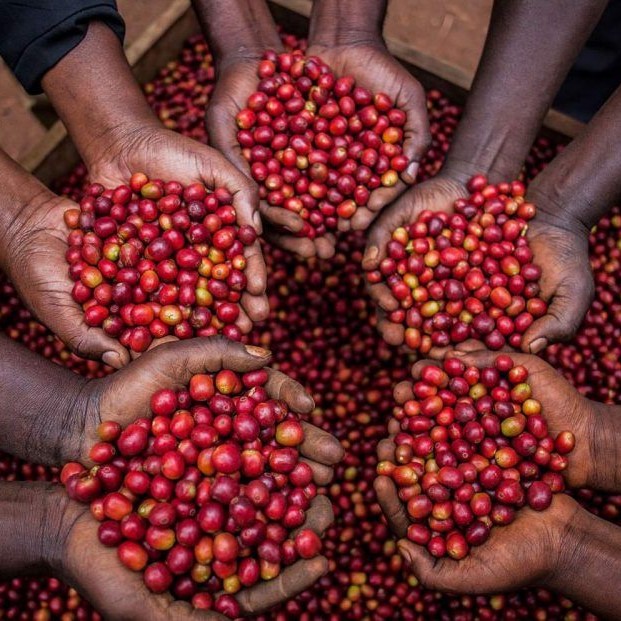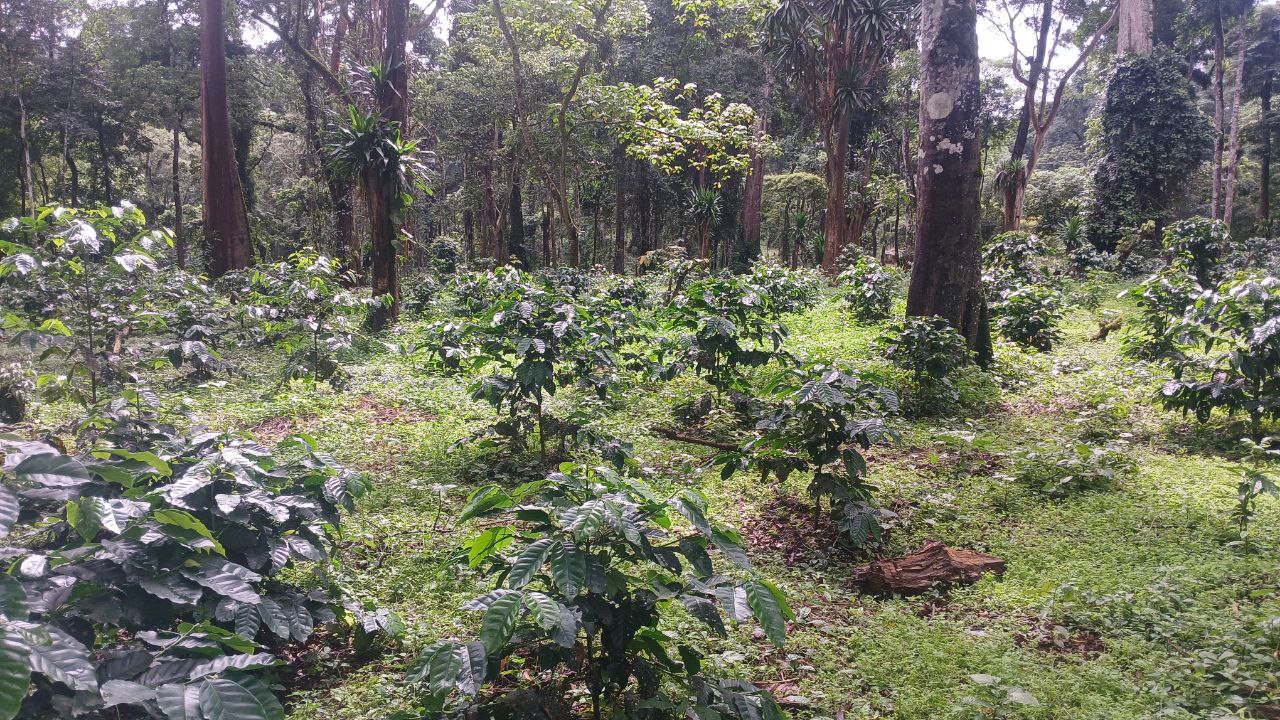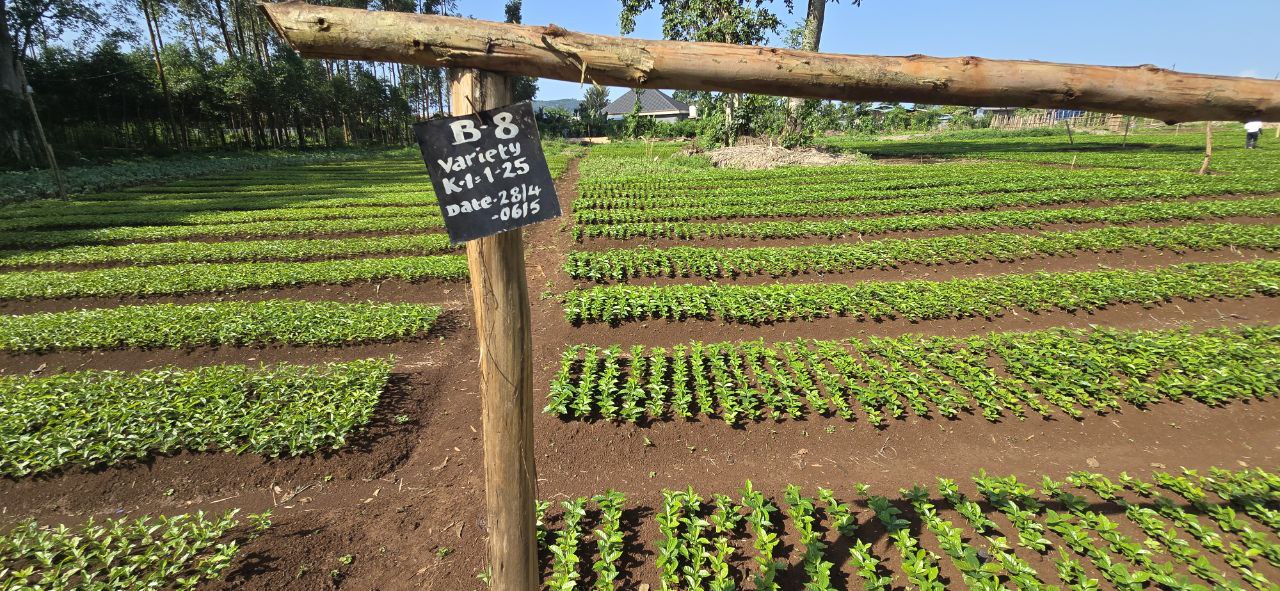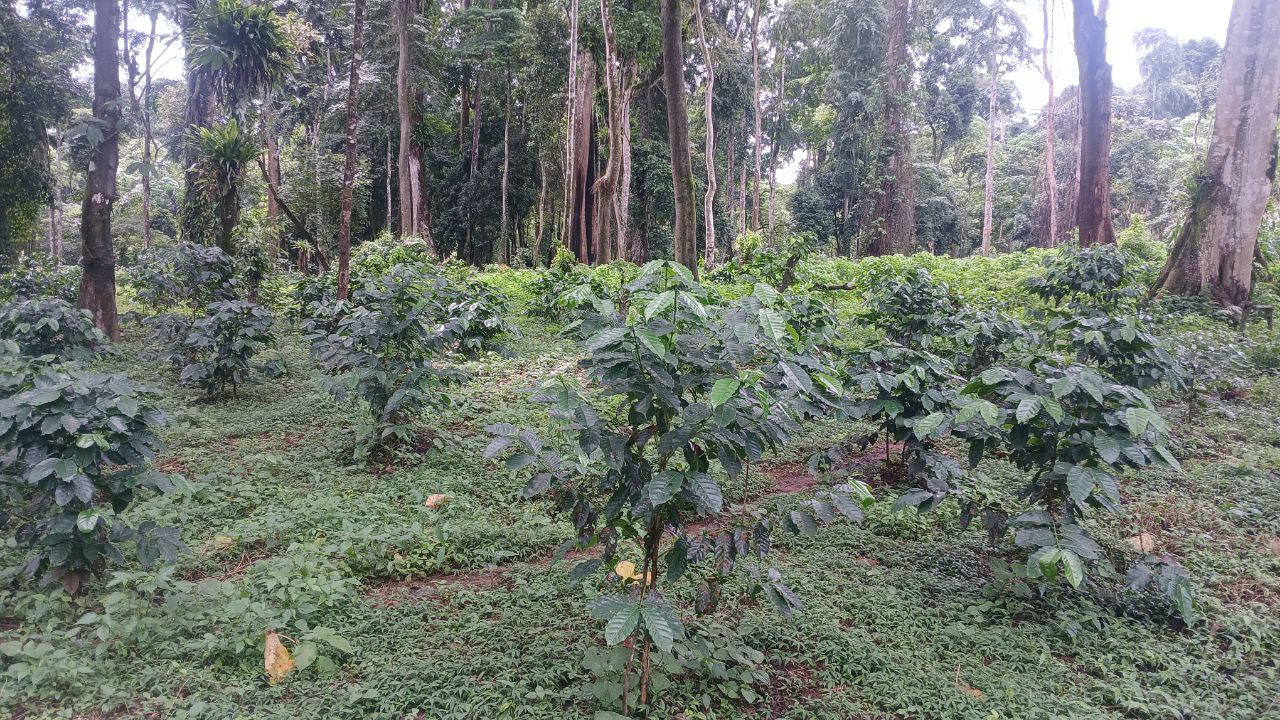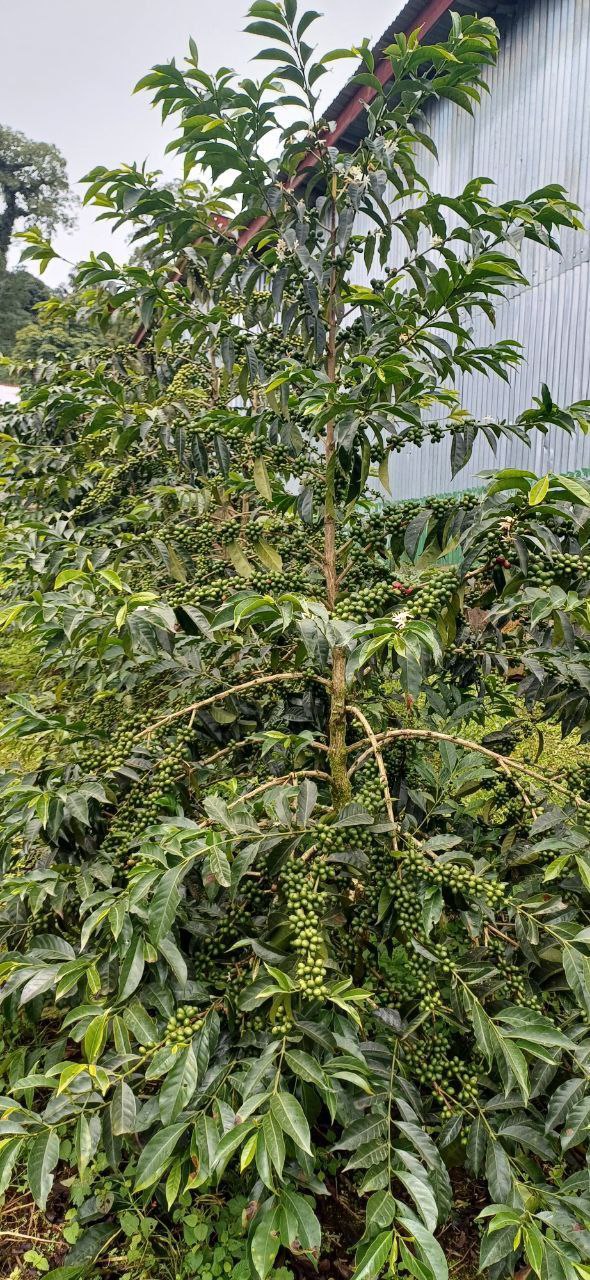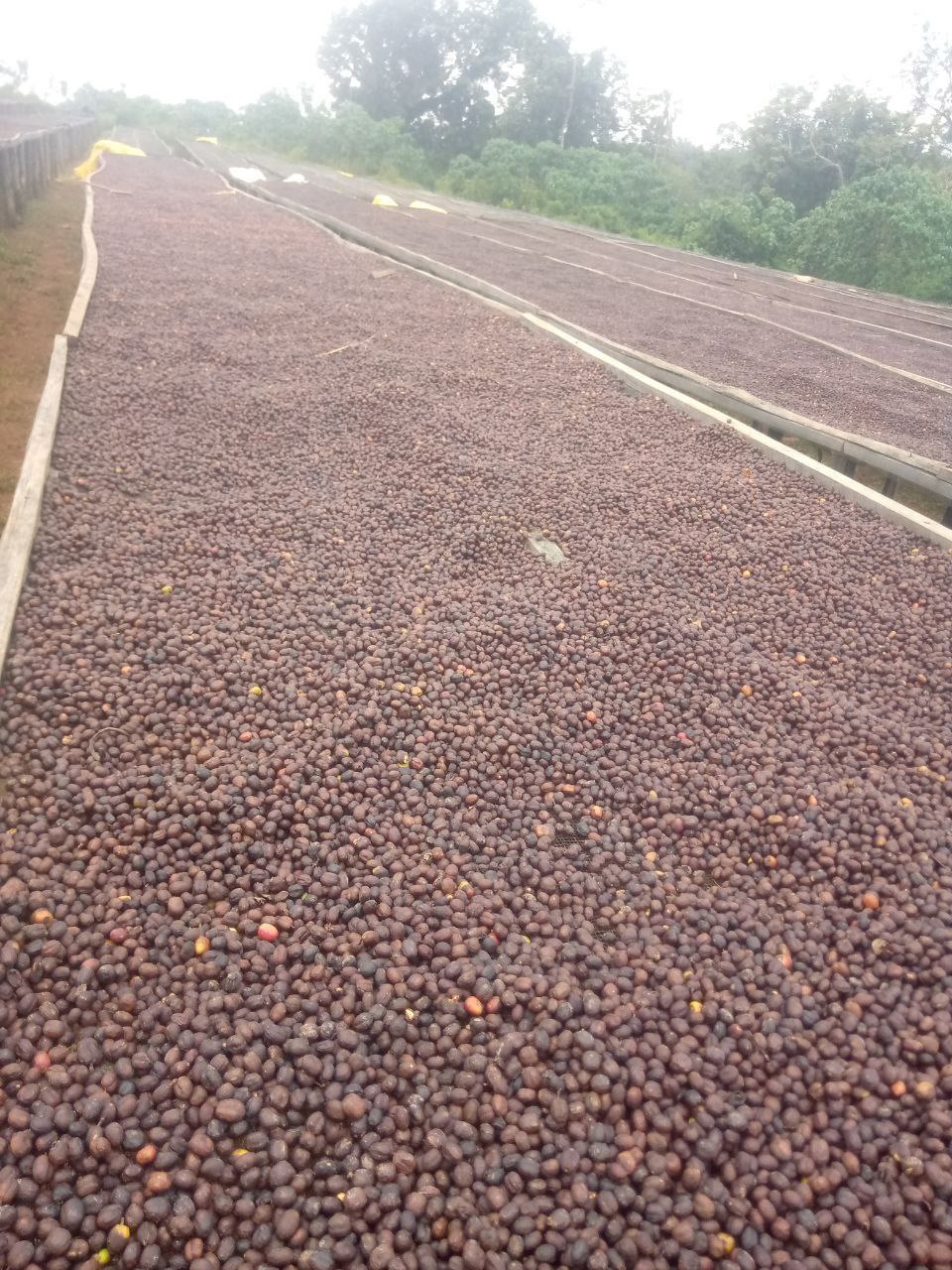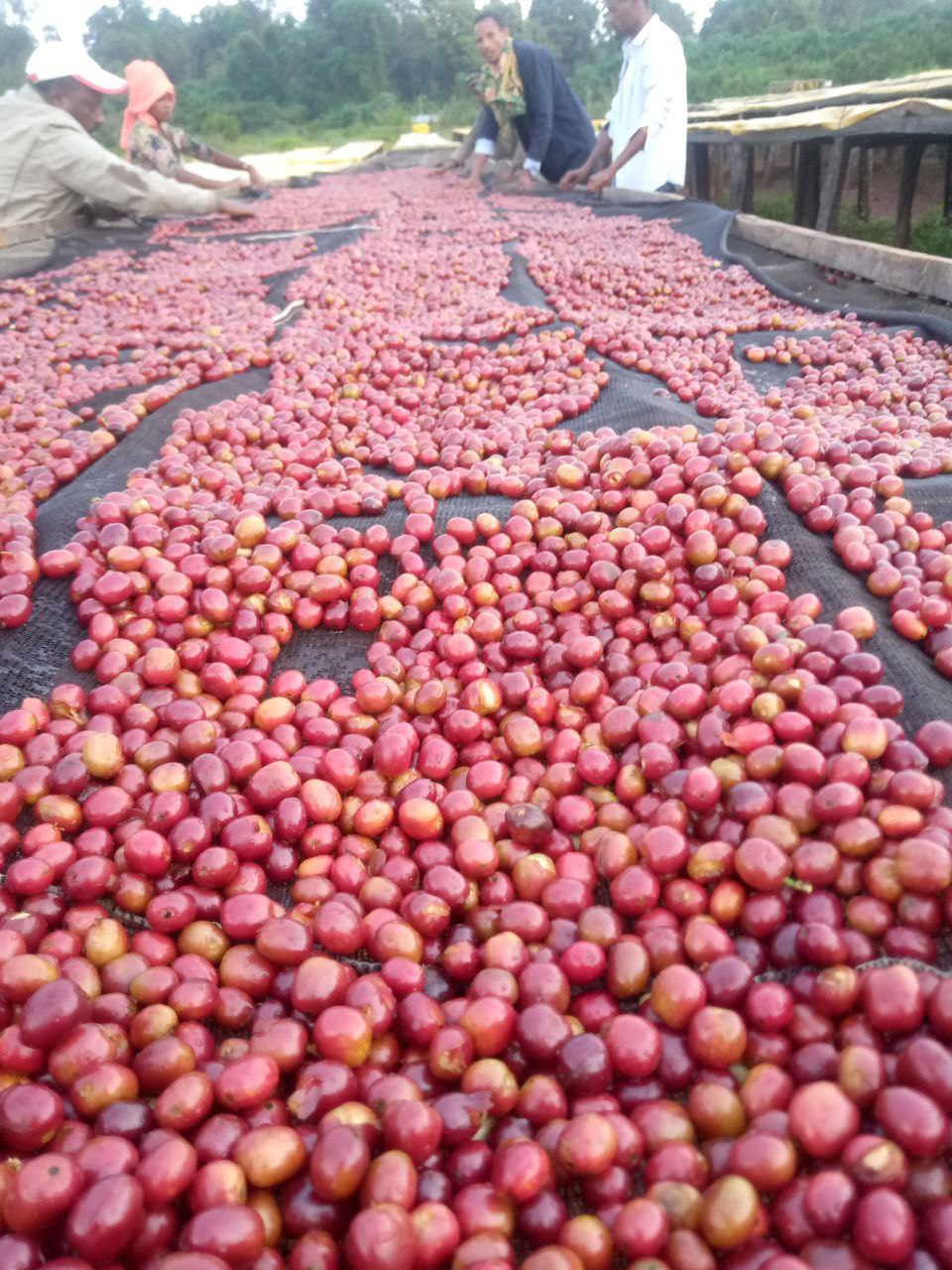Ethiopia is often regarded as the birthplace of coffee, known for its rich history and diverse coffee varieties. The country produces some of the world’s finest coffees, characterized by unique flavors and aromas.
Overview
Sidamo: Known for its floral and fruity notes.
Yirgacheffe: Famous for its bright acidity and complex flavors.
Harrar: Offers a wild, wine-like profile with berry notes.
Farming Practices:
Traditional Methods: Many farmers still use traditional methods, including shade-grown techniques that promote biodiversity.
Organic Practices: Increasing emphasis on organic farming to meet global demand for sustainable products.
Harvesting:
Hand-Picking: Coffee cherries are often hand-picked to ensure only ripe cherries are selected, enhancing quality.
Coffee Processing
Coffee Processing
Processing Methods:
Washed (Wet) Process: Cherries are fermented, washed, and dried, producing a clean, bright flavor.
Natural (Dry) Process: Cherries are sun-dried with the fruit intact, leading to fruity and complex flavors.
Quality Control:
Rigorous quality control measures are implemented during processing to ensure that only the best beans are selected for export.
Grading and Certification:
Coffee is graded based on size, shape, and quality, with specialty coffees often receiving certification to enhance marketability.
Economic Impact
Coffee farming is a crucial economic driver for Ethiopia, providing livelihoods for millions of smallholder farmers.
The coffee sector contributes significantly to national exports, making it vital for the country’s economy.
Washed (Wet) Process: Cherries are fermented, washed, and dried, producing a clean, bright flavor.
Natural (Dry) Process: Cherries are sun-dried with the fruit intact, leading to fruity and complex flavors.
Quality Control:
Rigorous quality control measures are implemented during processing to ensure that only the best beans are selected for export.
Grading and Certification:
Coffee is graded based on size, shape, and quality, with specialty coffees often receiving certification to enhance marketability.
Economic Impact
Coffee farming is a crucial economic driver for Ethiopia, providing livelihoods for millions of smallholder farmers.
The coffee sector contributes significantly to national exports, making it vital for the country’s economy.
